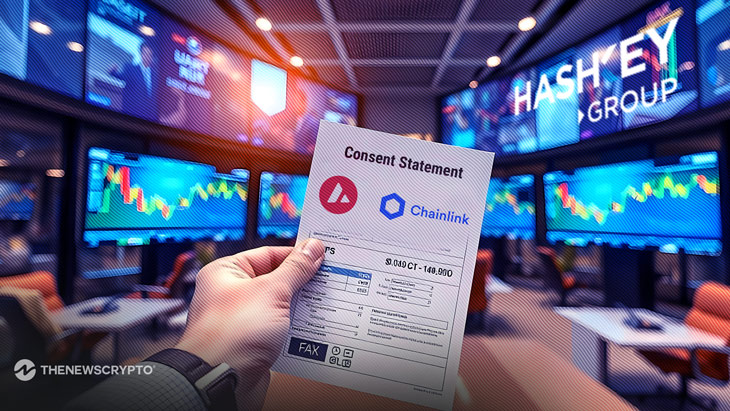- HashKey now lists AVAX and LINK for retail trading.
- The exchange previously only supported BTC and ETH.
HashKey, a licensed cryptocurrency exchange in Hong Kong, has announced the expansion of its asset offerings for retail investors. The exchange received approval to list Avalanche (AVAX) and Chainlink (LINK), allowing retail trading of these tokens in both Hong Kong dollars and US dollars. Previously, Hong Kong regulations only permitted retail investors to trade Bitcoin (BTC) and Ethereum (ETH).
This move aligns with HashKey’s strategy to leverage Hong Kong’s growing momentum in the Web3 sector. In a recent interview, Livio Weng, CEO of HashKey Exchange, emphasized the significance of this development. Weng noted that although AVAX and LINK might not have the same recognition as leading cryptocurrencies, their inclusion is a well-calculated decision.
Many major cryptocurrencies are currently facing legal challenges in different jurisdictions, making them less appealing for immediate listing. AVAX and LINK, both within the top 20 by market capitalization, provide a safer alternative for retail investors. Despite recent market downturns, both tokens have demonstrated strong growth, doubling in value over the past year.
HashKey’s Strategic Expansion in Crypto Assets
This expansion also comes as Hong Kong’s Securities and Futures Commission (SFC) tightens its grip on crypto licensing standards. Recent reports reveal that the SFC is enforcing stricter compliance measures for cryptocurrency exchanges, aiming to ensure transparency and mitigate risks associated with fraud and non-compliance.
The listing of AVAX and LINK marks the third phase of HashKey’s expansion, signaling potential future token additions. Weng hinted that more tokens could be approved for trading soon, potentially within weeks. Hong Kong aims to reclaim its position as a leading hub in the virtual asset industry. However, the path to becoming a global crypto hub has faced challenges.
Earlier this year, several international crypto platforms withdrew their applications for the necessary operational licenses due to stringent regulatory requirements. According to a Bloomberg report, at least 11 exchanges have been flagged by the Securities and Futures Commission (SFC) for non-compliance during on-site inspections. Despite these setbacks, Hong Kong continues to strive for regulatory clarity and market expansion.
Highlighted Crypto News Today
Haru Invest CEO Stabbed in Court Amid $826M Crypto Theft Charges








